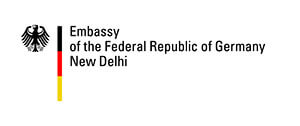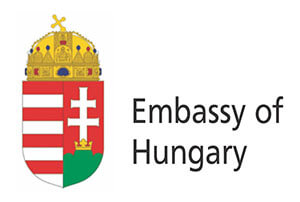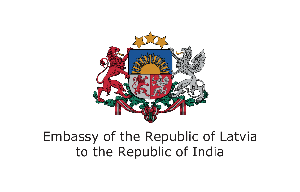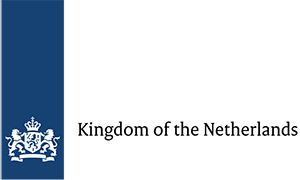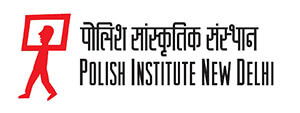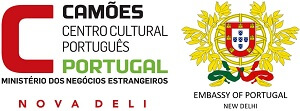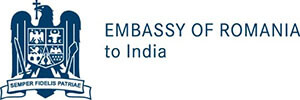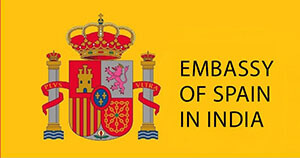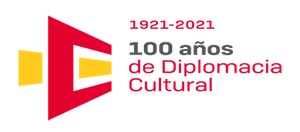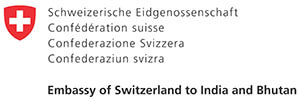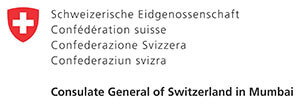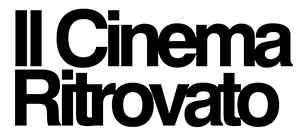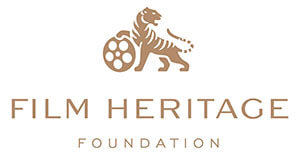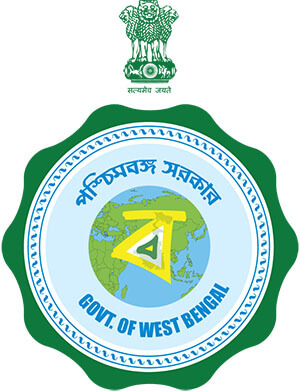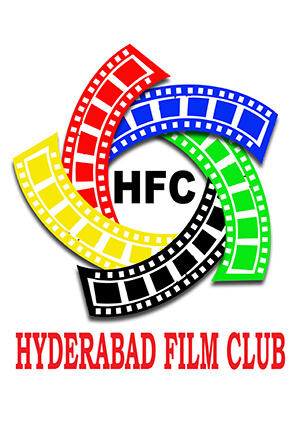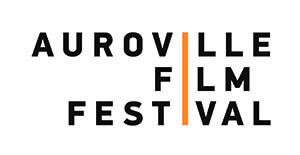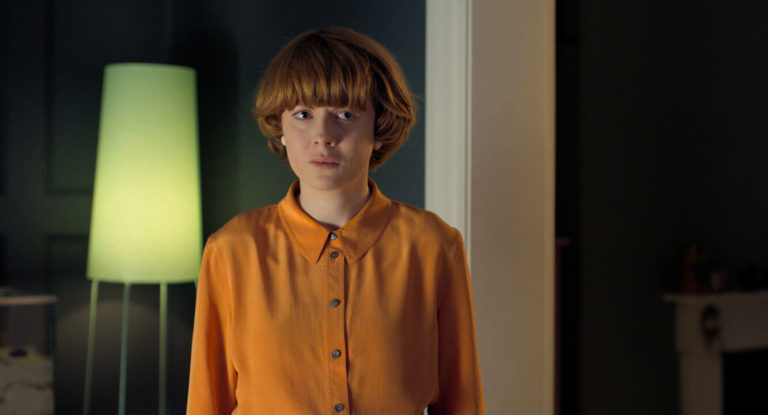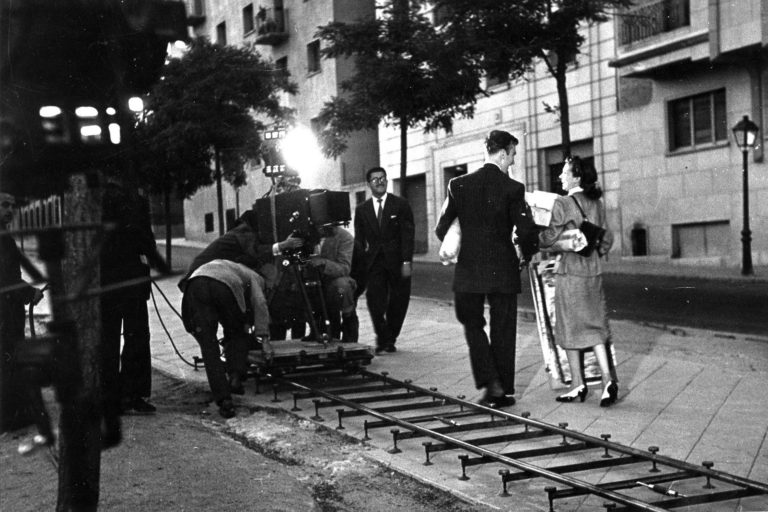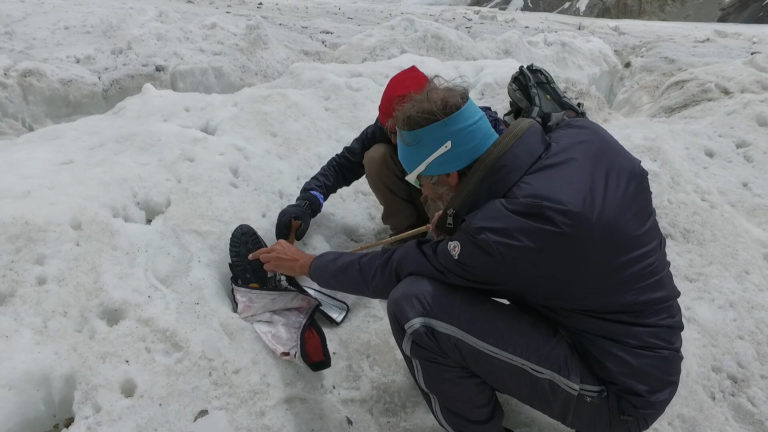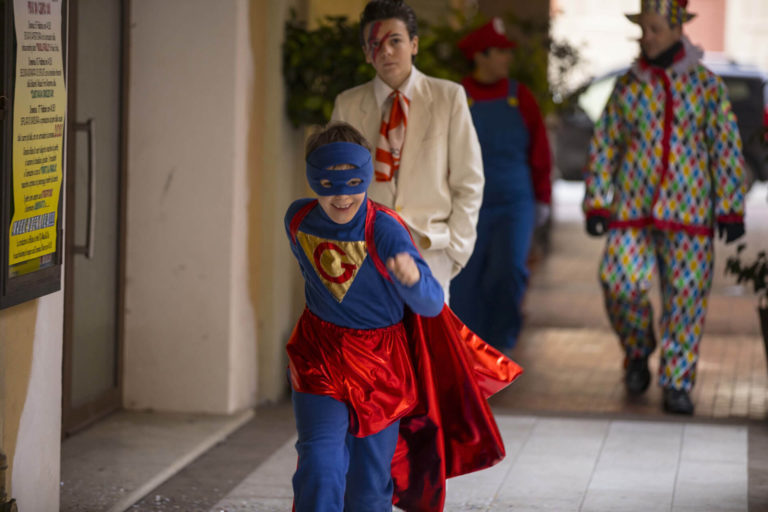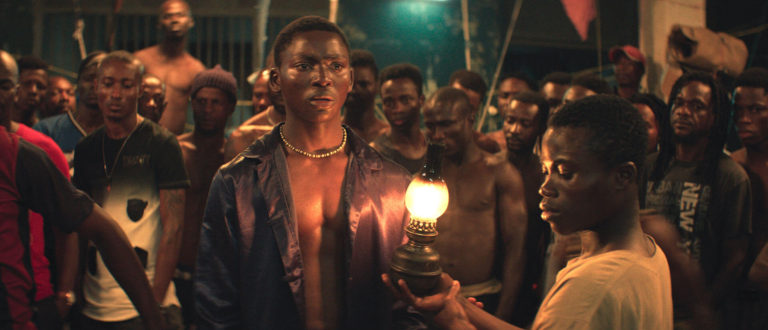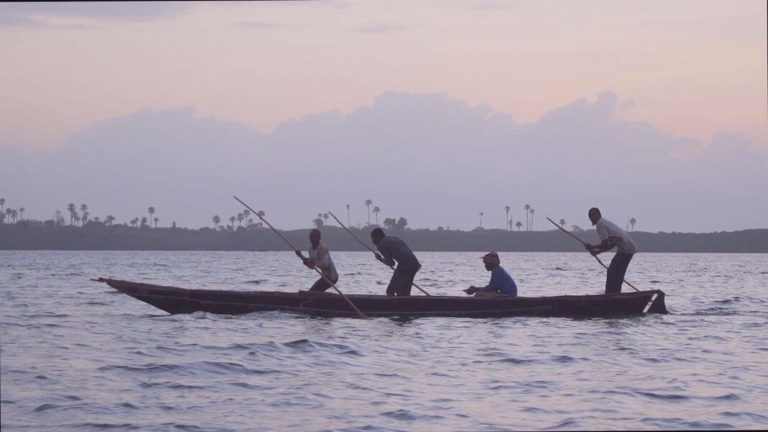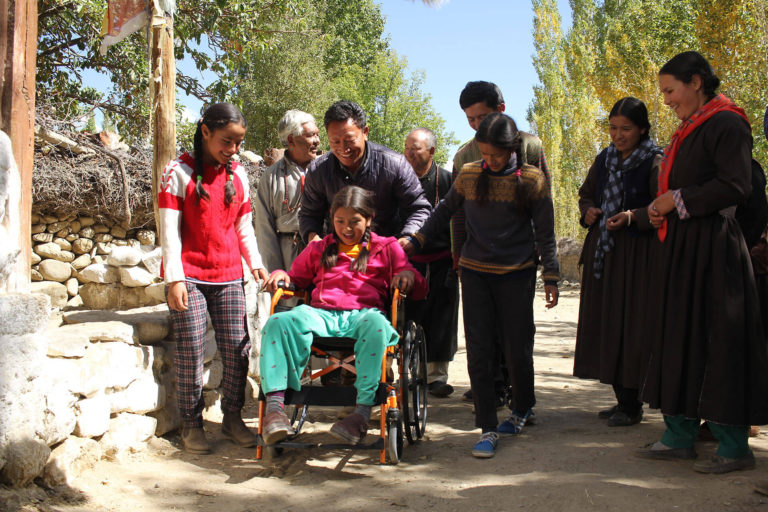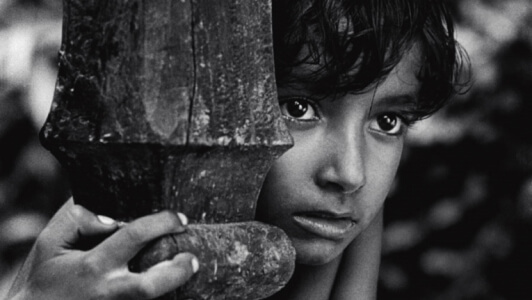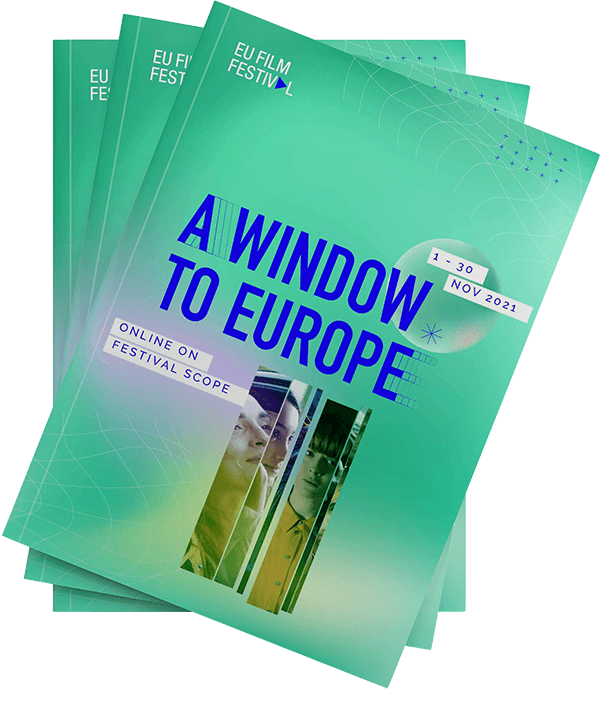About the film festival
The European Union Film Festival is an annual event celebrating the diversity and creativity of European cinema, heritage and culture. It is organized jointly by the Delegation of the European Union to India, Member States and regional partners. Currently in its 26th edition, the Festival will be held virtually, and all 60 films in the line-up will be available to viewers in India through November.
The Festival line-up, curated by Veronica Flora with Valerio Caruso, features critically acclaimed contemporary cinema from Europe, offering viewers a chance to enjoy recent triumphs from the festival circuit, including Cannes, Locarno, San Sebastian, Karlovy Vary, and Venice, among others. The films highlight cinema’s unique ability to shine a spotlight on individual stories, while reflecting universal narratives that will find resonance with audiences across borders.
As a tribute to Europe’s extraordinary cinematic legacy, the Festival will host a unique set of films that have been digitally restored and remastered, helping bring the continent’s formative films to new audiences. In collaboration with the renowned Cinema Ritrovato Festival, the line-up will explore the recent history of the continent as told by some of its most compelling chroniclers. From the pioneering Hungarian director Márta Mészáros’ The Girl, to Oscar-winning Closely Watched Trains by the Czech director Jiří Menzel, Roberto Rossellini’s neorealist drama Rome, Open City, and the essential The Last Stage by Wanda Jakubowska, this section provides a singular and in-depth look at Europe in the mid-20th century.
As a tribute to the enduring legacy of Indian cinematography and on the birth centenary of Satyajit Ray, the Festival will offer viewers a deep dive into such classics as the seminal Pather Panchali and the revolutionary Kalpana. A contemporary Indian section has been especially curated by the Dharamshala International Film Festival, bringing to screens diverse stories from across the country.
The climate emergency is addressed in a series of features and shorts, highlighting its widespread impact, and the solutions emerging from the crisis. A series of co-productions is a tribute to the spirit of collaboration in European cinematography, while film literacy and the promotion of audio-visual works find mention in a special section for young audiences.
Rich in genres, themes, influences and spread across generations, the films in this year’s line-up provide a distinctive window to Europe. They will be complemented by a number of side events featuring European and Indian cinema industry talent, and will discuss the most pressing issues raised in the selection. Among the most intense will be a script development workshop for professional Indian scriptwriters – the culmination of the Journey to Europe call launched by the Delegation earlier this year, and a testament to the Festival’s support for enhancing EU-India creative and cultural exchanges.
A Note From the Curator
Every time we watch a film, cinema takes us on a journey on the edge of reality and imagination, which brings us closer, near or a thousand miles away from where we are, to the life of people. Cinema does what art does: it brings us to reflect about the deepest meaning of our existence. Arousing questions and doubts, it reminds us that we are equal beyond and by virtue of our differences.
While today we are gradually back to the theatres, we can’t forget that in the nearly two years since the beginning of the pandemic, the magic of the seventh art has been a precious relief for many people. Films make us feel better in many senses, pushing us to hope, to resist and to rediscover different ways of being together. Thanks to their incredible as well as everyday stories and visions, films share common feelings to always keep our eyes wide open on reality and stimulate intercultural dialogue between peoples.
That’s the way of cinema the European Union Film Festival India aims to embody, support and promote: art that puts yourself in someone else’s shoes, starting from the simple as well extraordinary opportunity to watch films in their original version.
EUFF India – that for this 2021 edition will be still held online – offers again to its audiences a great multi-sensorial cinematographic experience, immersing it in the musical mosaic of different languages spoken in Europe: sounds and intonations resulting from the historical, mutual influences between cultures. In their amazing intertwining of similarities and differences, we can again find the reflection of the wealth and strength of our societies.
In this perspective and with the purpose to become an increasingly open and dynamic participative space to share and question the cinematographic experience, during 2021 EUFF India has launched a new cultural project entitled A Journey to Europe, aimed at contributing to enhanced creative exchanges between Europe and India. Thirty young talented Indian scriptwriters selected by a call will be involved and supported in training activities during the Festival and two of them will be awarded with a cultural journey to meet the film community in one of the most important European film festivals to continue developing their film projects in 2022.
In the meantime, the core of the Festival still remains the wide and eclectic selection of contemporary films and past masterpieces of European cinema populating the different and dialoguing sections, taking a look into the deepest folds of the human soul and investigating the complexity of our contemporary societies.
With Eurorama: European Cinema Today we will tune into the kaleidoscopic and overwhelming dimension of European cinema and its connections with world cinema. Thanks to the multi-directional perspectives of the most interesting international award-winning projects and independent, original, unexpected voices we’ll be able to evoke the deepest human feelings resonating with people in both the EU and India, and highlight fundamental universal issues such as the right to freedom and equality, social inclusion, mutual solidarity, environmental sustainability and climate change mitigation.
The Masters of European Cinema section of the 2021 edition is enriched by a collaboration with a world-renowned institution in the field of film heritage preservation: the Italian Festival Il Cinema Ritrovato. EUFF India offers to its highly cinephile audience a selection that combines different perspectives and aesthetic approaches to a crucial period in European and world history, between the end of World War II and the decades immediately following, in a so deep and far-sighted historical perspective that leads up to the present day. These incredible films offer us immortal looks, brilliant and intimate, on personal and political resistance, and the struggle for freedom against human, cultural and social oppression.
From one of the first and most iconic efforts to evoke the tragedy of the Holocaust by the Polish director Wanda Jakubowska in Ostatni etap (The Last Stage, 1948) to the unforgettable representation of resistance and personal sacrifice for freedom in Roma città aperta by Roberto Rossellini (Rome, Open City, 1945). From the stunning debut of the pioneering Hungarian director Márta Mészáros with the highly poetic and realistic style of Eltávozott nap (The Girl, 1968), to the warm and sharp irony of Juan Antonio Bardem and Luis García Berlanga’s comedy Esa pareja feliz (That Happy Couple, 1953); from the historical depth of the cinematic gaze and the visionary yearning for freedom of Jiří Menzel in Ostře sledované vlak (Closely Watched Trains, 1966) to the powerful and moving drama by revolutionary Bulgarian director Binka Zhelyazkova, A byahme mladi (We Were Young, 1961). Furthermore, in this section, in the bicentenary year of the birth of one of the most famous writers of all time, Gustave Flaubert, the European Union Film Festival in India in collaboration with the French Embassy in India, will celebrate his most emblematic and immortal masterpiece, Madame Bovary, showing Claude Chabrol’s 1991 film adaptation, starring the sublime Isabelle Huppert.
Cinema and other forms of expression reflected in countless multimedia screens, of all shapes and sizes, that surround us, are wide open doors to other unknown universes. For adults as well as for children. Since the first years of its birth, cinema has codified the basic forms and techniques of the “moving image” language that today permeates our daily existence in all its aspects. Film education and film literacy can absolutely be, thanks to cinema history and its everyday evolution, a fundamental support in the growth of the new generations. The Growing Up With Cinema section wants to take an inside look on film education with the participation of European and Indian experts active with their best practices in this wide, crucial field for the future of our societies.
The variety and internal dialogue between the different cinematographic forms – fiction and documentary, feature and short film (In A Few Words: A Short Film Selection) – and the game of genres, in their reciprocal contamination, are fundamental to raise awareness of some primary issues. With the Green Cinema: Addressing Climate Change section we will embark on a journey to different places all around the world – from Denmark to Morocco, from Switzerland to Nepal – to assist the incredible and touching stories related to the extreme dramatic environmental crisis. Cinema doesn’t just tell us about climate change but can also directly act to contribute to combat it: during the linked side event we’ll enter the dimension of the increasingly widespread best practices of the “green shooting” protocol.
Cinema helps us to remember how important it is to stand up for human rights but also how important it is to let them be integral to the fabric of our societies: family. The Contemporary Indian Cinema section – a precious collaboration with the Dharamshala International Film Festival, the historic festival of the Himalayas that is dedicated to contemporary independent Indian cinema – offers us a film selection focused on the highly complex system of human relationships and intergenerational dynamics within the archetypal microcosm of family and its very important connections and reflexes with the macrocosm of our societies.
Poetry on Screen is back too, to celebrate masterpieces of Indian cinema history. In the year of his centenary, EUFF India wishes to pay homage to the legendary director Satyajit Ray. After having been overwhelmed, in the last edition, by the poignant beauty of Aparajito, we return to Ray’s masterpiece film debut and the first chapter of the Apu trilogy: Pather Panchali (1955). Kalpana by Uday Shankar (1948), one of Ray’s beloved films, is the other great classic of Indian cinema we are proud to include in our selection: a revolutionary meta-cinematographic tale, mixing cinema vision and dance spirit, lucid realism and fabulous imagination.
Cinema is a collective job, made by a community of talents, creative and productive energies which cooperate together, at different levels, to create bigger and stronger projects. We love the idea that the increasingly expanding dimension of co-productions in European countries reflects the authentic sense of the European Union. With the section Cinema together: Co-production in and out of Europe we would like to discover the co-production universe and the passionate interest in working together to keep on celebrating the power of cinema and the art of storytelling, as a sign of belonging to humankind.
Cinema is a collective experience, let’s watch and support it together.
– Veronica Flora, Valerio Caruso
Trailer


60 FILMS
8 GENRES
37 LANGUAGES
80+ HOURS
100+ AWARDS & SELECTIONS
24 FEMALE DIRECTORS
Step by Step Registration Guide
- Enter www.euffindia.com
- Click on the film you want to see
- You will be redirected to Festival Scope
- Once inside Festival Scope, you can watch all films directly here, and it is not necessary to go to euffindia.com again
Contest
In August 2021, the Delegation of the European Union to India and Bhutan launched the Journey to Europe scriptwriting development call and contest, as part of the 26th edition of the European Union Film Festival. The first initiative of its kind, the call is a cultural exchange project, aimed at selecting and supporting young talent from India, through training activities for the development of high quality scripts submitted by professional Indian screenwriters in the 18-35 age group.
A select number of projects will be chosen for a series of workshops as part of the Festival, and candidates will be notified in advance. These workshops will be conducted by film critic and screenwriter Domenico La Porta, and will include practical techniques on script development.
Of this select group, following the multi-day workshops, the two best scripts will be chosen for further support over the course of 2021-2022, and the winning candidates will be given the opportunity to travel to an acclaimed film festival in Europe next year, pandemic-conditions permitting. On this trip, the winners will get the chance to network with European industry professionals and further develop their feature-length projects.
For more information on the call, visit here
PARTNERS













